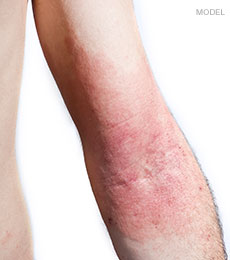- Mon-Sat : 09:30 am to 2:30 pm
- Evening : 5:00 pm to 8:00 pm
- s2skincare.vij@gmail.com
- info@s2skincare.com

Acne is the product of clogged pores, which can be caused by excess oil, and plugging of the pores resulting in comedones, or whiteheads and blackheads. These comedones often appear on the face, chest, back, and upper arms. When bacteria begins to grow within the clogged pore, infection and inflammation result, causing small red or white pimples. At the more extreme end of the spectrum are larger, deeper red nodules and cysts, which can be unsightly and painful.
Acne typically has a strong hormonal component. The hormonal fluctuations of adolescence and adulthood can result in an overproduction of oil, called sebum, which contributes to clogged pores. Other exacerbating factors include:
Temperature fluctuations: Eczema is typically worse in the wintertime and in arid climates. Some patients also notice an increase in symptoms in hot weather or after exercising.
Stress: Although the connection between stress and eczema isn't well understood, some people say they notice a worsening of symptoms during periods of high stress.
Chemical irritants: We use chemicals every day when bathing, cleaning, cooking, and working. While most everyday chemicals aren't harmful, some can trigger eczema in sensitive individuals. Common irritants include fragrances and dyes found in soaps or detergents, cosmetics, and even some foods.
Allergies: The same allergens that cause respiratory symptoms in some can case atopic eczema in others. Common allergens include pollen, mold, dust, and pets.
Although eczema on its own is not dangerous, it can be very uncomfortable. Sometimes, eczema's itch can be so intense that it causes patients to scratch until the point of bleeding, leading to potential infection and worsening symptoms. This cycle cannot be broken without effective treatment.
Although there is no cure for eczema, many patients find relief through a simple 3-step treatment plan. At S2 Skin Care, we customize each step for our patients. In general, eczema treatment involves:
Maintaining skin's moisture: Many topical products intended to maintain skin's moisture balance are available over-the-counter or by prescription. For many patients, this first step includes a mild non-soap cleanser and a gentle, fragrance-free moisturizer.
Reducing inflammation: Our physicians often prescribe topical corticosteroids or antihistamines to reduce itching and calm inflammation.
Avoiding triggers: You and your doctor will discuss the specific factors which trigger your eczema and work together to develop ways to avoid them. These lifestyle adjustments may include:
Switching from hot to tepid showers
Avoiding clothing and bedding made of itchy or synthetic fabrics
Switching to laundry detergent and personal care products formulated for sensitive skin.
Sign up to be the first to learn about offers, specials and news from S2Skin Care.